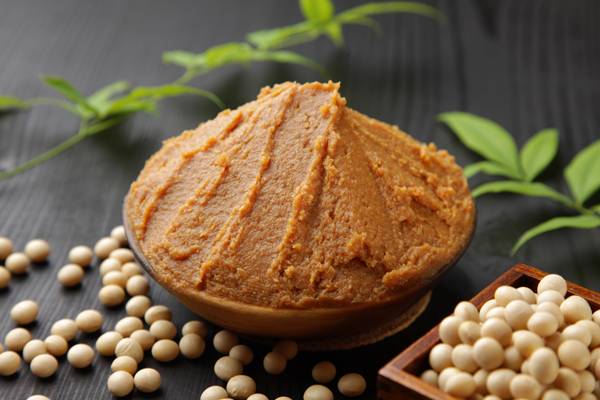Fermented foods, these are their benefits
Fermented foods promote digestion and provide beneficial microorganisms for the intestine. Discover these and other interesting properties!
TRIED AND TESTED
Share

Fermented foods have been part of the human diet forever. They are foods that promote digestion and provide beneficial microorganisms for the intestine. Some of the best known fermented foods are yogurt, cheese, bread, sauerkraut, kefir or vinegar, but with the arrival of kombucha, the benefits that fermentation has around our health. Discover them below!
What are fermented foods?
Fermentation is the transformation that food undergoes by the action of bacteria and yeasts. During this process, the sugars are defined in acids, gas or alcohol, which act as natural preservatives of the food.
Fermentation has been used by humans since ancient times as a way to keep food for long periods. Nowadays, we find many fermented foods in the Mediterranean diet, but also drinks such as beer or wine. In addition, in recent years we have seen how other more exotic fermented foods such as kefir or kombucha have been added.
Benefits of fermented foods
Not all fermented foods have the same properties, but most share some common characteristics that benefit our entire body, especially our intestines. Take note of them!
- They help promote digestion: fermented foods help improve digestion because they have already been partially digested by bacteria or yeast, making them more digestible for our body.
- Promote the absorption of nutrients: fermentation helps break down and destroy those acids, such as phytic acid, which have the potential to reduce the absorption of other beneficial nutrients for health such as zinc, calcium or iron .
- They favor the intestinal flora: fermented foods help to populate our intestine with healthy microorganisms, therefore, in addition to taking care of our intestine, they reinforce the immune system.
- Increases the presence of vitamins: Fermented foods are an excellent source of essential nutrients and vitamins. Some of the nutrients that we can find in this type of food are vitamin B12 or vitamin B9, better known as folic acid; and vitamin K2, difficult to find in non-fermented foods.

Examples of fermented foods
- Sauerkraut: produced from the fermentation of cabbage or white cabbage. It is consumed a lot in Germany. When the fermentation process begins, the number of lactic acid bacteria present on the surface of the cabbage leaves increases, so that after consumption the pH of the intestine is restored, improving the digestive process and the absorption of nutrients. Sauerkraut is also an excellent source of vitamin C and vitamin K.
- Kefir: This is a fermented milk product similar to liquid yogurt. Fermentation occurs through the action of a group of yeasts, fungi and bacteria. This food is rich in probiotics, lipids and proteins that promote intestinal health.
- Miso: it is a fermented soybean paste and other cereals such as wheat, rice or barley with the fungus Aspergillus Oryzae. For centuries it was considered a healing food in China and Japan. For generations it has been used to prepare hot soups or as a condiment for other dishes. Miso contains enzymes that aid digestion.
- Kombucha: it is a fermented drink with a slightly acid flavor obtained from sweetened tea fermented by a colony of gelatinous microorganisms. If the fungus is fed continuously, the process is endless, which is why kombucha is called "the mushroom of immortality." Historically it has been taken in China, Russia and Germany, although for some time now the benefits of kombucha for the body have spread its consumption in our country.
- Yogurt: the properties of yogurt for our body are more than proven. This food has around 100 million bacteria that transform part of the lactose into lactic acid. The microorganisms found in yogurt are capable of regenerating the intestinal flora. Also, some varieties of yogurts may contain bifidobacteria that also stimulate the immune system.
- Kimchi: is a food of Korean origin that results from the fermentation of Chinese cabbage.

How to consume fermented foods?
Have you found the benefits of fermented foods interesting, but do you know how to introduce them into your daily life? Here are some brief tips.
- Try introducing kefir or yogurt as part of your complete and balanced breakfasts.
- Try substituting kombucha for sugary sodas… Just as refreshing, but much healthier!
- Season your recipes with a sauce made with miso and add a touch of flavor to your dishes.
- Be encouraged to introduce new foods such as sauerkraut and kimchi in your daily recipes. Try this Korean kimchi recipe and be encouraged to try different flavors.






